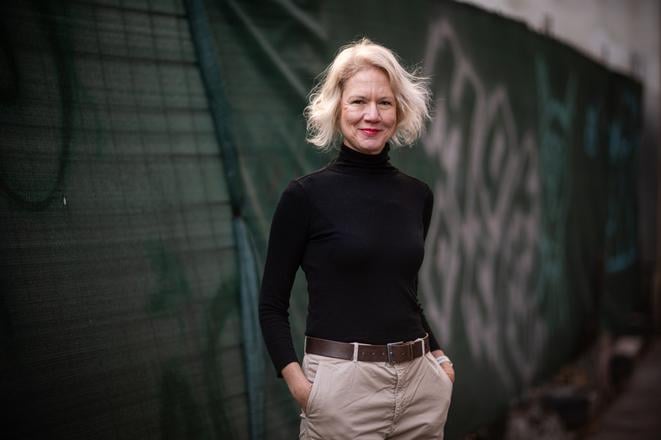As a journalist, it is uncommon to interview your own colleagues about their work. However, this year Sme daily's KRISTÍNA KÚDELOVÁ has become a member of the Golden Globes Association (formerly Hollywood Foreign Press Association (HFPA)) and as such a juror for the prestigious Golden Globe Awards, also known as the Academy Awards precursor, which the former presents.
With the nomination process for the former reaching its peak in the last few weeks, it has been hectic for her. She has seen hundreds of films and series, and interviewed the film industry's biggest stars including Kate Winslet, Nicole Kidman, Edward Norton and Tilda Swinton.
"It was also very pleasant to sit in my kitchen and watch Hugh Grant, who is as charming in real life as he is in the movies, ask someone how to turn the app off after the interview," she says.
In this interview you will read about:
How did she become an HFPA member, how many films has she had to see and what it means to be a Golden Globe Awards juror.
Whether Sharon Stone tried to give her a watch, if there is pressure on the jurors, the scandals the awards faced in the past.
Why the best films come to cinemas late in the year.
How Hugh Grant handles online interviews, how Tilda Swinton's family looks, and the other stars she interviewed for the Sme daily.
How many films and series have you seen this year?
I have never made lists, but my body told me it must have been a lot. I tried to count how many there are on the streaming platform that we as HFPA members have access to, but I gave up because it would take me a very long time. I estimate that there are about 500 of them, not only films, but also several-hour long series and stand-up specials.
As a juror, do you have to see them all?
That would be my guess in order to be fair. But that's beyond our limits. I would say that many of us stopped watching when it was clear halfway through that there was no reason to vote for the film. The problem is also how little time we had to watch them. The first films started appearing on the platform in July, but the strongest contenders only in recent weeks. This is because film studios and production companies hold onto their trump cards until the end of the season, so that they remain in the memory of those who vote at the Academy Awards or the Golden Globes. It's also practical for their campaign.
With this many films, the question is whether you can fully see their quality. It's one thing to see it in a cinema with the luxury no interruption, and another to see one movie after another at home.
I started a notebook for this purpose. But if I were to count the pages on which I wrote something down, I would come up with nothing. Since many of the films weren't good, there was nothing to write down. I don't want to sound harsh, in the end I saw a lot of great films, but it took weeks for me to get the feeling that I could choose from a few very good and even fewer exceptional films.
In the past, the Golden Globes was associated with scandals and attempts at corruption. Sharon Stone gave all the jurors a $400 watch, while Cher invited them to a private concert in Las Vegas. Has anyone tried to give you a watch?
No one. I received books with scripts, records and DVDs, but I consider those to be materials that help me get to know the film better. It's true that the HFPA had problems of this type in the past. The fact that I'm now a member and represent the Sme daily is a result of its leadership trying to solve the problems. In the past, the awards were given out by foreign journalists who worked in Los Angeles. However, four years ago, a Norwegian journalist pointed out that it was a closed community that did not want to share its prestige. Although she had lived in Hollywood for several years, her application for membership was repeatedly rejected.
So the Golden Globes had to and wanted to clear their name, and part of that is opening up to journalists who work outside the US. The American Academy Awards had to go through a similar process not long ago, because it was unsustainable for only older white men to decide on them. When I was hired, I had to sign several documents stating that I would not have a conflict of interest, accept gifts, or participate in anything that could be considered corruption. For example, part of the code is that if I conduct interviews on my own without the HFPA's help, I cannot emphasize that I am a Golden Globes juror. And just yesterday, we received an email reminding our colleagues in Los Angeles not to attend parties hosted by studios or distributors until the results are announced.
In short, it's about adhering to strict but common journalistic ethics.
Exactly. However, it should also be said that especially projects with a large campaign budget have a chance to win.
How did you end up being a juror?

 Sme daily culture reporter Kristína Kúdelová. (source: Marko Erd)
Sme daily culture reporter Kristína Kúdelová. (source: Marko Erd)